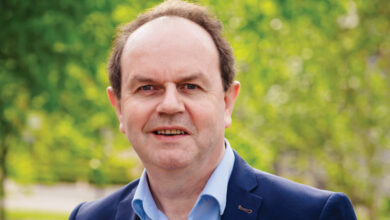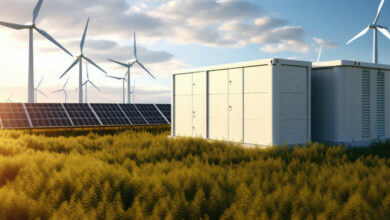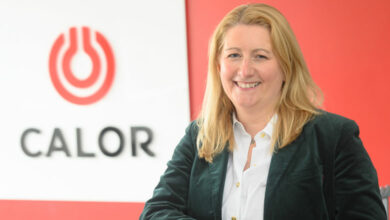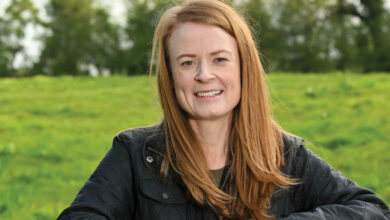Greg Barker: climate change aims
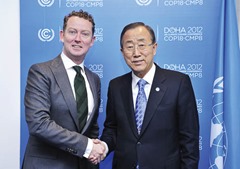 Progress on cutting carbon production gives the UK credibility but larger economies need to take more action, Greg Barker says. The Climate Change Minister talks to Peter Cheney.
Progress on cutting carbon production gives the UK credibility but larger economies need to take more action, Greg Barker says. The Climate Change Minister talks to Peter Cheney.
While the UK is making good progress on cutting carbon production, its efforts will be ineffective without further action by other major economies. That was the thrust of Greg Barker’s remarks to a Policy Exchange seminar on green industrial policy at the Conservative Party conference.
Barker had just returned from climate talks at the UN in New York. “The reality is what we are doing per se is trivial compared to the rest of the world,” he told agendaNi before explaining the wider context. “We actually are doing incredibly well for our 2 per cent of emissions. What I know [is] from looking around at the G20 countries that sit around the table with me in negotiations, I can hold my head up high.
“We’re doing our bit. Unless they all do their bit as well, it really doesn’t matter. So we do need China, America, the big economies, to actually take a stand and there’s a lot more that they need to do.”
Greg Barker has been Minister of State for Climate Change at the Department of Energy and Climate Change since May 2010. A Tory MP since 2001, he was previously Head of International Investor Relations for Russian energy firm Sibneft for two years.
As reported in agendaNi (issue 61, pages 24-26), Professor Dieter Helm has argued that renewable energy will only make little difference to climate change if Europe continues to consume Asian goods – which are produced by coal power. In his view, Europe has chosen to ignore its hidden carbon consumption.
“Of course, there’s a degree of truth in that,” Barker added but he saw “encouraging signs” in his meetings with the Chinese negotiator. He had just signed a memorandum of understanding on climate change with the Governor of Guangdong – China’s largest province in population terms – and he would be leading a clean tech trade mission to China later in the autumn.
The USA now has “some degree of political leadership” from Barack Obama. The President will meet with Chinese President Xi Jinping at the UN in September 2014 to discuss the next major summit, to be held in Paris in December 2015.
Barker appeared to acknowledge Helm’s position on this i.e. that Europe’s views will be sidelined by this stage. Helm and many environmentalists view a 2015 summit, setting policy for 2020, as too late to make a difference.
Taking Germany’s example, Barker wanted to see a “ruthless” drive for energy efficiency but also more allowances for energy for heavy industries which simply needed more energy to operate normally.
Barker also saw a need to be “more candid, more accountable and more grown-up” in explaining the costs of renewables to consumers: “For too long, the vested interests in the environmental movement have somehow assumed that the usual discipline of good value, the expectation of trying to explain yourselves to consumers, didn’t apply to them.” The Minister is therefore encouraging the low carbon sector to “commercialise sooner [and] scale up faster” and reduce its level of subsidy more quickly.

